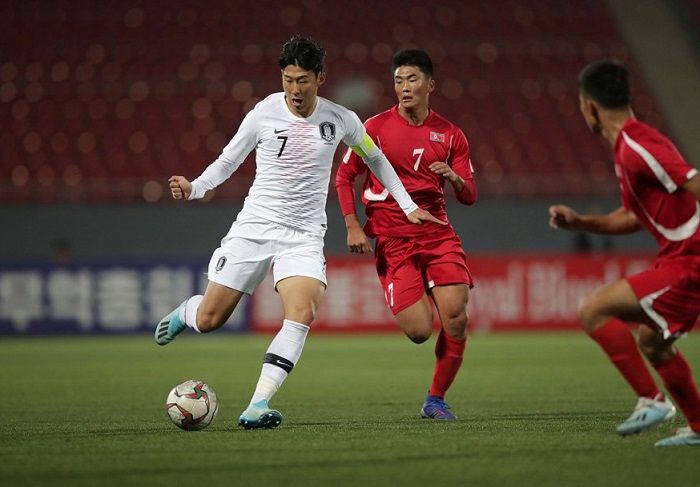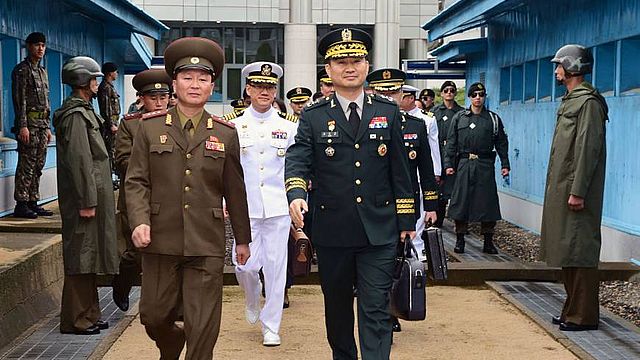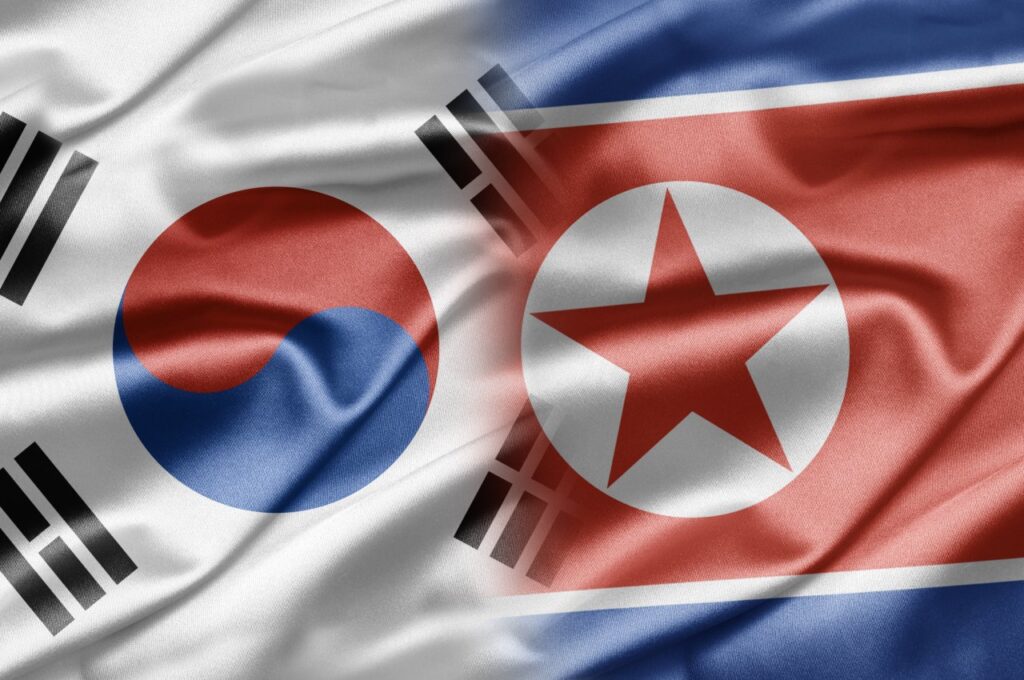The Korean Peninsula has been a hotspot for geopolitical tensions for decades, with North Korean South Korea relations at the heart of global discussions on peace, security, and diplomacy. Since the division of Korea after World War II, the two nations have experienced periods of severe conflict, military standoffs, and diplomatic engagements. Despite sharing a common cultural and historical background, the political ideologies of North Korea (DPRK) and South Korea (ROK) could not be more different, resulting in a prolonged conflict that has drawn in global powers, including the United States, China, and Russia.
This article examines the historical and current state of North Korean and South Korean relations, the persistent tensions between the two nations, the impact of external factors such as the Russia-Ukraine war, and how these elements shape the future of peace and security in the region.
A Brief History of North Korean South Korea Relations
The Korean War and Division of the Peninsula
The division of Korea into two separate states dates back to the aftermath of World War II, when the Korean Peninsula was liberated from Japanese occupation. The peninsula was divided along the 38th parallel, with the Soviet Union occupying the north and the United States occupying the south. This division eventually led to the establishment of North Korea, a communist state led by Kim Il-sung, and South Korea, a democratic republic backed by Western powers.
Tensions erupted into full-scale war in 1950 when North Korea invaded the south, leading to the three-year Korean War. The war resulted in massive casualties but ended in a stalemate, with the Korean Armistice Agreement signed in 1953. Despite the armistice, no formal peace treaty has been signed, leaving North Korea and South Korea technically still at war.
Read Also: north korean south korea
Cold War Era Tensions
During the Cold War, North Korea aligned itself with communist powers like the Soviet Union and China, while South Korea strengthened its ties with the United States and other Western nations. This division mirrored the larger geopolitical struggle between the Eastern and Western blocs. In the 1960s and 1970s, North Korea developed its military capabilities, including its nuclear program, while South Korea experienced rapid economic growth, becoming one of the “Asian Tigers.”
Throughout this period, sporadic military skirmishes, espionage, and assassination attempts kept tensions high between the two Koreas. Despite occasional diplomatic efforts, such as family reunions and joint economic projects, the relationship between the two nations remained fraught with hostility.
The Current State of North Korean and South Korean Relations
Tensions Under Kim Jong-un’s Leadership
Since Kim Jong-un took power in North Korea in 2011, following the death of his father Kim Jong-il, the country has continued to develop its nuclear and ballistic missile programs. These developments have resulted in heightened tensions with South Korea, the United States, and other international players. North Korea’s nuclear ambitions are seen as a direct threat to regional and global security, leading to international sanctions and diplomatic isolation.
In response, South Korea has maintained a firm stance against North Korea’s provocations, while also advocating for dialogue and diplomacy. Several summits between South Korean President Moon Jae-in and Kim Jong-un between 2018 and 2019 provided a glimmer of hope for improved relations, with agreements on military de-escalation zones and family reunions. However, these agreements have largely stalled due to North Korea’s ongoing missile tests and lack of follow-through on denuclearization commitments.
The Role of the U.S. and China
The involvement of external powers like the United States and China has always been a critical factor in North Korean-South Korean relations. The U.S. has long been a key ally of South Korea, providing military and economic support, while maintaining a significant military presence in the region as a deterrent against North Korean aggression. China, on the other hand, remains North Korea’s most important ally, providing economic support and acting as a buffer between Pyongyang and the rest of the world.
Under Donald Trump, the U.S. took an unprecedented step by engaging in direct talks with Kim Jong-un. Despite high-profile summits, including meetings in Singapore and Hanoi, these talks failed to yield concrete results in terms of North Korea’s denuclearization. President Joe Biden has since returned to a more traditional approach, emphasizing deterrence and pressure on North Korea while keeping the door open for diplomacy.
Read Also: north korean south korea
The Impact of the Russia-Ukraine War on Korean Relations
The Russia-Ukraine war, which began in February 2022, has had far-reaching implications for international relations, including the dynamics between North Korea and South Korea. The conflict has reshuffled global alliances, and both Koreas have responded in ways that reflect their respective alignments with global powers.
North Korea’s Support for Russia
North Korea has publicly supported Russia’s actions in Ukraine, aligning itself with Vladimir Putin‘s government. This is largely seen as a continuation of the historical ties between North Korea and Russia, dating back to the Soviet era. North Korea has condemned Western nations for imposing sanctions on Russia and has used the conflict as an opportunity to deepen its relations with Moscow.
Reports suggest that North Korea may have even provided military assistance to Russia, although these claims are difficult to verify. In return, North Korea has likely benefited from increased economic and political support from Russia, as both nations face international isolation due to sanctions.

South Korea’s Position on the Russia-Ukraine War
South Korea, as a U.S. ally and a democratic nation, has taken a stance against Russia’s invasion of Ukraine. South Korea has participated in international sanctions against Russia, including limiting exports and freezing Russian assets. Additionally, South Korea has provided humanitarian aid to Ukraine, aligning itself with the broader international community that condemns Russian aggression.
The Russia-Ukraine war has placed South Korea in a delicate position, as it navigates its relationships with both the U.S. and China while addressing the continued threat from North Korea. The conflict has underscored the importance of maintaining strong alliances, particularly with Western nations, to counterbalance North Korea’s growing ties with Russia and China.
The Possibility of Reunification: A Distant Dream?
Reunification of the Korean Peninsula has long been a topic of discussion, both in South Korea and internationally. However, the path to reunification is fraught with challenges, given the stark ideological, political, and economic differences between North and South Korea.
Obstacles to Reunification
- Political Systems: North Korea’s authoritarian regime, led by the Kim dynasty, is fundamentally incompatible with South Korea’s democratic government. The Kim regime has shown no willingness to relinquish power, and any discussion of reunification is seen as a threat to its survival.
- Economic Disparities: South Korea boasts one of the world’s most advanced economies, while North Korea remains isolated and impoverished. The economic burden of reunification would be enormous, with estimates suggesting that integrating North Korea into the South’s economy could cost trillions of dollars.
- Military Concerns: North Korea’s nuclear capabilities present a significant obstacle to reunification. South Korea and its allies would demand denuclearization as part of any reunification process, but North Korea views its nuclear arsenal as essential to the survival of the regime.
Diplomatic Efforts Toward Peace
Despite the challenges, both Koreas have made efforts toward peaceful coexistence. The Panmunjom Declaration signed by Moon Jae-in and Kim Jong-un in 2018 represented a hopeful moment for inter-Korean relations. The declaration called for a formal end to the Korean War and the pursuit of denuclearization. However, progress has stalled, and North Korea’s continued missile tests and nuclear developments have dampened hopes for lasting peace.
International efforts, including those led by the United Nations, have also sought to mediate between the two Koreas, but lasting peace remains elusive.
Global Implications of North Korean and South Korean Relations
The ongoing tensions between North Korea and South Korea have significant global implications, particularly in the context of broader geopolitical conflicts like the Russia-Ukraine war. The Korean Peninsula is a focal point for the power struggle between the U.S. and its allies, including South Korea and Japan, and adversarial states like North Korea, Russia, and China.
The Role of Global Powers
The United States, China, and Russia play pivotal roles in shaping the future of the Korean Peninsula. As the U.S. and its allies continue to confront Russia over its actions in Ukraine, North Korea’s alignment with Russia may lead to increased cooperation between Pyongyang and Moscow. Meanwhile, China, which has traditionally acted as North Korea’s benefactor, continues to balance its support for the regime while maintaining stable relations with South Korea for economic reasons.
The Russia-Ukraine war has further complicated these dynamics, with North Korea and Russia seeking to strengthen their ties in opposition to Western influence, while South Korea looks to reaffirm its alliances with the U.S. and Europe.

Conclusion
The relationship between North Korea and South Korea remains one of the most complex and volatile in international relations. While efforts at diplomacy have occasionally brought hope for peace, the persistent tensions, compounded by external factors such as the **Russia-Ukraine



